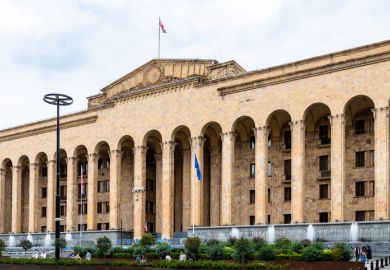A historic speech, presumably, is one which contributes to making an occasion historic. In this collection, obvious examples are the great funeral orations of Pericles and Lincoln: acts of consecration which raise the level of civic consciousness. The political purpose is all too often connected with war, here represented by a number of emotive wartime speeches; William the Conqueror makes an unexpected but welcome appearance on the eve of the battle of Hastings; others include Elizabeth I, Churchill, and Hitler - on Czechoslovakia. But the selection excludes Churchill's great speech in the House of Commons on the Munich agreement.
Colonial movements are imaginatively represented. There are two types, external and internal. The external seeks separation - Ireland, India (Gratten, O'Connell and others; Gandhi, though not Nehru); the internal seeks a liberated integration - racial equality (Martin Luther King), women's liberation (Elizabeth Cady Stanton, Susan B. Anthony, Emmeline Pankhurst, Emma Goldman and others). The Akron, Ohio, women's convention of 1851 is now best remembered for Sojourner Truth's "And ain't I a woman?" - surely, despite the fragmentary report, one of the greatest speeches of the 19th century. Abolition of slavery and the cause of the American Indian are also well represented. A cluster from the French revolution dramatises the sudden transformation of a long history tradition of political criticism into a spate of brilliant oratory.
The earlier section "Of commoners and kings" runs from Ethelbert to Cromwell. John Ball speaks for the peasants' revolt. But in general, the Middle Ages left little oratory (a speech by Dante is said to survive in the archives of Florence), though there must have been a wealth of memorable sermons. Sermons, however, do not fare particularly well. Are they not "speeches"? Jonathan Edwards's "Sinners in the hands of an angry God" and Gilbert Tennent's "Danger of an unconverted ministry" were more influential than any political statement of their time in the American colonies, and Jonathan Mayhew's sermon on "Unlimited submission", delivered in 1750 on the anniversary of Charles I's execution with the purpose of confuting the Anglicans of Boston, was a case of the sermon as political rallying cry. And why nothing from Wesley and Whitefield, who moved the masses whom parliamentary speech could not touch?
Speech becomes historic when it transcends its local audience and arouses feelings or reinforces convictions in later generations. No doubt this effect of historic vitality and rejuvenation is made possible because the sentiments we experience are being re-awakened; they belong to a moral canon. If this is so, then it seems a most remarkable quality of the Sermon on the Mount that it created a moral canon in spite of being in many respects counter-intuitive. Why, for heaven's sake, should people love their enemies or turn the other cheek? Are they natural things to do? That canon was firmly established when John Winthrop, preaching for his Puritan congregation on the Arbella bound for Massachusetts Bay in 1630, "wrote back" to the original sermon by claiming that "We shall be as a city upon a hill".
Pericles, Queen Elizabeth, Lincoln, Gladstone, Wilson, Lloyd George, Roosevelt, Hitler, Kennedy and many others addressed the people at large. But as Andrew W. Robertson argues, in his recent monograph The Language of Democracy, 18th-century political speech in America as in Britain was the language of the elite, spoken within an elite context; over the next century, the style was broadened to embrace and thereby to enlarge the external public - which happened earlier in America than in Britain. The process could have been illustrated from the Lincoln-Douglas debates of 1858. Gladstone's Midlothian campaign is the earliest British example. The use of speech writers, which complicates the issues, began with a later generation, (unless you begin the process with the Ten Commandments, an early example of the speechwriter as policymaker).
The language of the law makes only a few appearances - beginning with Cicero's denunciation of Cataline and including Erskine's defence of Paine. Nelson Mandela's speech at his trial in 1964 altogether transcends the legal process and addresses humankind. But certain opportunities have been missed. One of the four speeches by Chatham could have been sacrificed to make room for Camden's contemporaneous pronouncements from the bench in the General Warrants cases - foundation stones of English liberties which ought to be required reading in Michael Howard's Home Office. And one might plead for Oliver Wendell Holmes's defence of free speech in his dissenting opinion in Gitlow: "The only difference between the expression of an opinion and an incitement in the narrower sense is the speaker's enthusiasm for the result. Eloquence may set fire to reason I".
Eloquence frequently sets fire to reason in Macarthur's majestic volume; it is, in fact, not a bad description of historic speech.
J. R. Pole is emeritus professor of American history, University of Oxford.
The Penguin Book of Historic Speeches
Editor - Brian MacArthur
ISBN - 0 670 848 557
Publisher - Viking
Price - £20.00
Pages - 503
Register to continue
Why register?
- Registration is free and only takes a moment
- Once registered, you can read 3 articles a month
- Sign up for our newsletter
Subscribe
Or subscribe for unlimited access to:
- Unlimited access to news, views, insights & reviews
- Digital editions
- Digital access to THE’s university and college rankings analysis
Already registered or a current subscriber?



